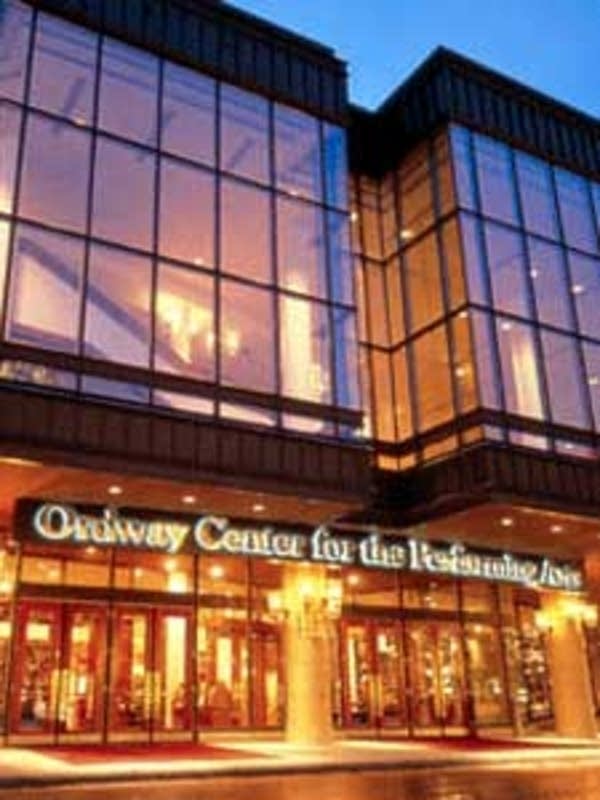Armed with a new study, arts advocates lobby lawmakers
Go Deeper.
Create an account or log in to save stories.
Like this?
Thanks for liking this story! We have added it to a list of your favorite stories.

Arts advocates have long argued Minnesota's arts scene is a boon to the state's economy. Now they say they finally have the numbers to back up that claim. The study was commissioned by Minnesota Citizens for the Arts and conducted by the national arts advocacy group, Americans for the Arts.

It surveyed Minnesota nonprofit arts groups and their audiences during fiscal year 2004, focusing on such issues as budget size, employment, audience spending habits and revenues. The study also used data supplied by the U.S. Department of Commerce, as well as local tax information.
It determined the total economic impact of nonprofit arts in Minnesota is nearly $850 million. It also concluded nonprofit arts generated more than $94 million in state and local revenues.
Minnesota Citizens for the Arts Executive Director Sheila Smith says the results were surprising, even to her.
Turn Up Your Support
MPR News helps you turn down the noise and build shared understanding. Turn up your support for this public resource and keep trusted journalism accessible to all.
"The number that's really amazing to me is over 22,000 jobs are supported by the nonprofit arts and culture. That number was far beyond what I expected," says Smith.
Over 22,000 jobs are supported by the nonprofit arts and culture. That number was far beyond what I expected.
According to the study, that figure dwarfs the number of jobs created in other sectors of Minnesota's economy, including mining, bridge and road construction, and spectator sports.
The study also broke down the state into 11 different regions and analyzed each individually. Smith says from northwest Minnesota to the Arrowhead, the lake region to southeastern Minnesota, the arts bolster local economies.
"Every single region of Minnesota, no matter how rural, has at least a million dollars in economic impact," Smith says.
In the metro area, the study shows an economic impact of nearly $720 million. Smith says the study's numbers are extremely conservative, because they don't include for-profit arts groups and independent artists. Also, more than two-thirds of the groups they did suvey failed to respond.
Smith says the report dispels a couple of myths about the state's art scene -- first, that it exists only in the Twin Cities, second, that's it's basically a volunteer activity.
"There are jobs out there for people full time, working in the arts, who are paying their rent and raising their families on jobs in the arts," says Smith, "and I don't think people generally think about the arts in that way."
The study is being released in conjunction with "Arts Advocacy Day," when dozens of arts lobbyists buttonhole lawmakers in the halls of the state Capitol.

This year the primary legislative goal is to include the arts in what's called the sales tax dedication bill. If passed, the bill would give voters the opportunity to approve a constitutional amendment that would set aside a tiny fraction of the sales tax for specified uses.
Sheila Smith says the state's art scene has been ravaged by post-9/11 economic woes, decreased foundation support, and a state arts budget that's been cut by 32 percent.
"This bill, if it passes, would double funding. And that would put us back to slightly above where we were before all the cuts," says Smith.
Rep. Tom Hackbarth, R-Cedar, is the chief author of the sales tax dedication bill in the House. Hackbarth says he's been working on it for years and this is as far as he's gotten.
But Hackbarth says the original aim of his measure was to dedicate money to game, fish and wildlife preservation. He's exasperated by what he describes as DFL attempts to add more beneficiaries to the bill, in this case the arts.

"If folks want to bring a bill forward for dedicated funding for the arts, so be it. They can do that. But why are they trying to tack it on to a bill that has to do with game and fish and dedicated funding for wildlife habitat? I don't get it," Hackbarth says.
Sen. Richard Cohen, DFL-St. Paul, was the one who added the arts to the Senate version of the bill. Cohen says the simple reality is there's only going to be one dedication bill, primarily because it doesn't make sense to put multiple constitutional amendments on the ballot.
"If you have one ballot issue that's a dedication for one thing, and another ballot issue that's a dedication for another thing, I would suggest the voters would be quite confused over what's on the ballot, and ultimately nothing would pass," Cohen says.
Cohen says the arts have brought international acclaim to Minnesota. If there's to be any recognition of the role the arts play in Minnesota, says Cohen, this is the only place to do it.



